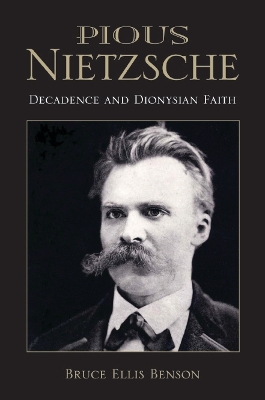Philosophy of Religion
2 total works
Norman Wirzba, Bruce Ellis Benson, and an international group of philosophers and theologians describe how various expressions of philosophy are transformed by the discipline of love. What is at stake is how philosophy colors and shapes the way we receive and engage each other, our world, and God. Focusing primarily on the Continental tradition of philosophy of religion, the work presented in this volume engages thinkers such as St. Paul, Meister Eckhart, Kierkegaard, Husserl, Heidegger, Ricoeur, Derrida, Marion, Zizek, Irigaray, and Michele Le Doeuff. Emerging from the book is a complex definition of the wisdom of love which challenges how we think about nature, social justice, faith, gender, creation, medicine, politics, and ethics.
Bruce Ellis Benson puts forward the surprising idea that Nietzsche was never a godless nihilist, but was instead deeply religious. But how does Nietzsche affirm life and faith in the midst of decadence and decay? Benson looks carefully at Nietzsche's life history and views of three decadents, Socrates, Wagner, and Paul, to come to grips with his pietistic turn. Key to this understanding is Benson's interpretation of the powerful effect that Nietzsche thinks music has on the human spirit. Benson claims that Nietzsche's improvisations at the piano were emblematic of the Dionysian or frenzied, ecstatic state he sought, but was ultimately unable to achieve, before he descended into madness. For its insights into questions of faith, decadence, and transcendence, this book is an important contribution to Nietzsche studies, philosophy, and religion.

